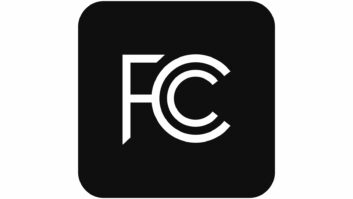290 FM channels on the auction block
Jun 1, 2004 12:00 PM, By Harry Martin
The FM auction initially announced almost four years ago, but postponed four times, is now back on the calendar for Nov. 3, 2004. The auction is described in an April 15 public notice available on the Audio Division’s Web page (under �Audio Headlines�) on the FCC’s website (www.fcc.gov).

The Commission will conduct the auction in consecutive rounds, with all channels being available to be bid on in all rounds. To bid on a particular channel, a bidder must have made an upfront payment large enough to ensure it has sufficient bidding units to cover the minimum opening bid for that channel. If a bidder wishes to bid on more than one channel in a given round, the bidder must have made an upfront payment sufficient to purchase enough bidding units to cover the to-be-bid-for channels. Here are some examples of how the system works.
- In the Form 175 (auction qualification statement), you specify only one channel that you want to apply for, and the upfront payment for that channel is $10,000. You submit an upfront payment in that amount. When the auction starts, you can only bid on that one channel, because that is the only one you specified in the Form 175.
- A slight variation. In the Form 175, you specify two channels, each of which has an upfront payment of $10,000. If you submit an upfront payment of $20,000, you would be able to bid on both channels in each round of the auction. In fact, you would have to bid on both in each round, because your maximum eligibility would be 20,000 bidding units (based on your total upfront payment of $20,000), and the rules require that in each round you must be active (i.e., either place a bid or be the standing high bidder from the preceding round) in markets whose upfront payments equal your maximum eligibility. Because you would be able to bid in only two markets (since those are the only ones listed in your Form 175), and because those two upfront payments for those two markets equal your maximum eligibility, you would have to bid in both markets during each round, or risk losing eligibility.
- Suppose in the Form 175 you specify a total of 15 channels, 10 of which have upfront payments of $10,000 each, four of which have upfront payments of $50,000 each, and one of which has an upfront payment of $200,000. You submit an upfront payment of only $200,000, which gives you maximum eligibility of 200,000 bidding units. During each round of the auction you would have to be active with respect to markets totaling in the aggregate $200,000. Thus, you could bid on the $200,000 channel. Or you could bid on all four of the $50,000 channels. As long as you are �active� in each round in markets having an aggregate upfront value of $200,000, you remain able to bid, in the next round, with respect to any of the channels you specified in your application.
- In the first two rounds you might elect to bid on the $200,000 channel alone. Because a bid in that market would exhaust your maximum eligibility, you would not be able to bid on any other markets during those rounds. But let’s say that, by the end of round two, you feel that the $200,000 channel is being priced beyond your limits by other bidders. In rounds three � five, you might then decide to bid on the four $50,000 markets. Because such bids would again exhaust your 200,000 bidding units, you would not be able to bid on any of the other markets (i.e., any of the $10,000 markets, or the $200,000 market) during that round. But let’s then say that one of the $50,000 markets gets priced out of your league by other bidders. In round six, you could then continue to bid on the other three $50,000 markets, but also place bids in five of the $10,000 markets.
- By the time you get to round seven, you may have determined that the price for the $200,000 channel, which you stopped bidding on after round two, really isn’t all that high. At that point, as long as you are not the high bidder in any other market you’re bidding on, you could jump back in and bid on the $200,000 channel, even though you had not been active there since round two. But because the $200,000 value of that market would exhaust your maximum eligibility, you would not be able to bid in any other markets during that round.
Dateline:
Radio stations in Illinois and Wisconsin must file their renewal applications on or before Aug. 1. Their EEO program reports and ownership reports are due with the renewals. Also on Aug. 1, stations in Iowa and Missouri must begin their pre-filing renewal announcements.
Martin is an attorney with Fletcher, Heald & Hildreth, PLC., Arlington, VA. E-mail[email protected].







